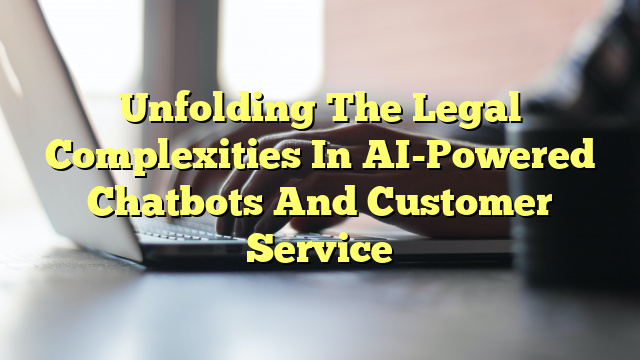Table of Contents
Legal Implications of Chatbots
AI-powered chatbots have become increasingly popular in customer service, but their use also raises several legal implications. One of the main concerns is data privacy and security. Chatbots collect and process personal information from users, which must be handled in compliance with data protection laws. Companies using chatbots need to ensure that they have proper consent from users and implement appropriate security measures to protect the data.
Another legal issue is liability. If a chatbot provides incorrect or misleading information that leads to harm or financial loss, who is responsible? Is it the company that owns the chatbot, the developer who created it, or the user who relied on the information? These questions raise complex legal challenges that need to be addressed.
Ethical Issues of AI Chatbots
AI chatbots also pose ethical concerns. One of the main issues is transparency. Users interacting with a chatbot should be aware that they are not communicating with a human but with an AI system. Companies need to clearly disclose the use of chatbots to avoid misleading users.
Another ethical concern is bias. Chatbots learn from the data they are trained on, which can include biased or discriminatory information. This can lead to the chatbot providing biased responses or perpetuating stereotypes. Companies need to carefully monitor and train their chatbots to ensure they are fair and unbiased.
Downsides to Using AI Chatbots in Customer Service
While AI chatbots offer many benefits in customer service, there are also downsides to consider. One of the main downsides is the lack of human touch. Chatbots may not be able to provide the same level of empathy and understanding as a human customer service representative. This can lead to frustrated or unsatisfied customers.
Another downside is the potential for technical errors. Chatbots rely on complex algorithms and machine learning models, which can sometimes make mistakes or provide inaccurate information. This can result in customer dissatisfaction and damage to the company’s reputation.
Risks of AI-Powered Chatbots
AI-powered chatbots come with certain risks. One of the main risks is the potential for malicious use. Chatbots can be programmed to engage in harmful or illegal activities, such as spreading misinformation or scamming users. Companies need to implement strong security measures to prevent such misuse.
Another risk is the loss of jobs. As chatbots become more advanced, they may replace human customer service representatives, leading to job losses. This can have a significant impact on the workforce and raise concerns about unemployment.
Conclusion
AI-powered chatbots offer great potential in customer service, but they also come with legal complexities and ethical considerations. Companies need to carefully navigate these issues to ensure compliance with laws, protect user privacy, and provide fair and unbiased interactions. While there are downsides and risks associated with chatbots, proper implementation and monitoring can help mitigate these challenges.

